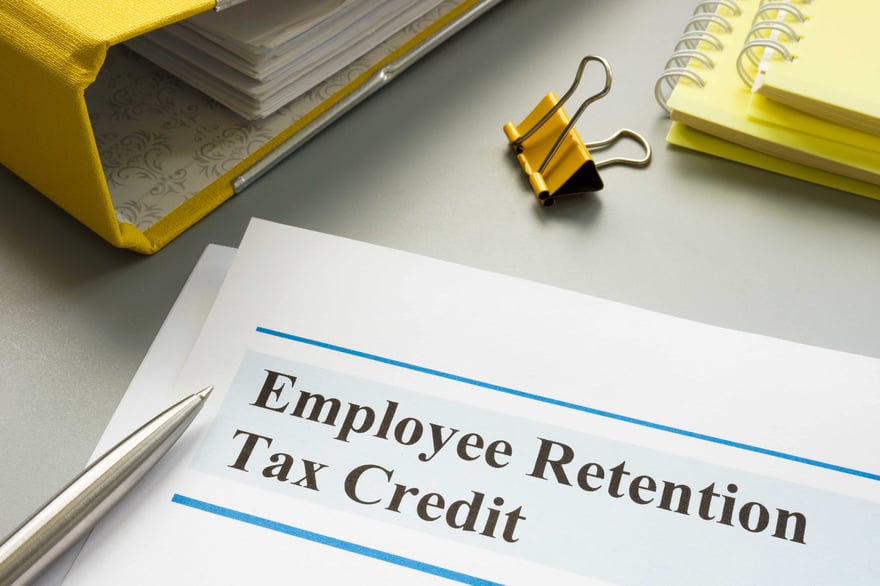Earlier this week, in response to the increasing number of fraudulent claims and unscrupulous individuals taking advantage of small business owners, the IRS announced that they have decided to slow down the processing of new Employee Retention tax credit claims.
This news, of course, sent shockwaves through the tax advisory industry and many business owners may be wondering if they are at risk of being audited or penalized. In our offices here at Cunningham & Associates however, there was a collective sigh of relief. The government recognized the need to protect ethical companies from being affected by this fraudulent activity. This step, while causing some delays and inconveniences, ensures that valid claims will still be eligible for the credit. It's a necessary measure to protect taxpayers, as Deputy Treasury Secretary Wally Adeyemo explained.
“What the IRS is trying to do here is make sure we disrupt this ecosystem of those trying to scam taxpayers,” said Adeyemo.
How did we arrive at the current state of the Employee Retention Tax Credit? Let's explore its history.
During the pandemic, Congress passed the Paycheck Protection Program (PPP) to support small businesses. This program provided forgivable loans based on the number of employees a business had. It was relatively easy to qualify for and was managed through the banking system. In late 2020, Congress expanded the Employee Retention Tax Credit (ERTC) program, allowing businesses that received PPP funding to also claim the credit.
However, the ERTC program was surrounded by complex rules and guidance, making it confusing for taxpayers. This may come as a surprise to many taxpayers as the PPP process conditioned them otherwise. This confusion, coupled with the IRS's processing mechanics and unclear guidance, created an opportunity for fraudulent providers to scam taxpayers. These providers, known as ERTC Mills, have been convincing taxpayers that they qualified for the credit and charge exorbitant fees.
This is why the IRS is now compelled to slow down the processing of new claims. Taxpayers with valid claims will still be eligible for the credit, but they must be patient and ensure they have the necessary supporting documentation. It also underscores the importance of working with licensed tax professionals to review the merits of your claim and ensure compliance. Overall, the ERTC program has been a lifeline for businesses impacted by the pandemic, and the IRS is taking appropriate measures to deter fraudulent claims so it can remain in place.
What does this mean for small businesses?
When taxpayers submit a refund claim, it's important to note that the IRS will process the claim, but this doesn't guarantee immediate review and approval. It's the taxpayer's responsibility to ensure the validity of their claims and provide the necessary supporting documentation. It's crucial to understand that the IRS has the authority to audit these claims.
This is how groups that came to be known ERTC Mills were able to exploit the situation. They would simply perform a basic calculation of the credit, disregarding any genuine qualifying measures. They would often delay collecting their fees until after the refunds were received, giving the taxpayer a false sense of approval. In addition, the taxpayer would typically be required to confirm and sign off on their eligibility, transferring the liability away from the mill.
If you're a small business owner worried about your ERTC claim, what steps should you take next?
First, if you're filing a claim with the IRS, it's important to understand that the processing times may be longer than usual. However, if you are working with a reputable tax professional and your claim is valid, a little patience is all that's required. While it's true that submitted claims and those filed before the deadline may experience some delays, the good news is that much of the backlog has already been addressed. So, you can rest assured that the lead times won't be significantly longer than when the backlog was at its peak.
Second, if you have any doubts or concerns about a claim that has already been paid, it is highly recommended to consult with a licensed and reputable tax professional who can thoroughly assess the validity of the claim. In the event that it is determined that the claim was not valid, the IRS is providing businesses with the opportunity to repay the funds to avoid further consequences.
Finally, if your claim is currently being processed, talk with a licensed tax professional who can thoroughly evaluate the strengths of your claim and ensure that it meets all compliance requirements. The IRS is also allowing businesses to withdraw any claims that could be deemed invalid or fradulent.
Parting thoughts
The ERTC program has been an important and powerful lifeline to organizations impacted by the pandemic. But, unfortunately, as we often see, bad actors and opportunists took advantage of business owners in need of help in a difficult time and defrauded the system. The IRS is taking the appropriate measures to clamp down and deter fraudulent claims from being submitted and processed. At C&A we fully support the IRS position and any steps taken to defend American taxpayers and business owners.
If you're concerned about an existing claim or you're considering filing a new claim and looking for guidance, we can help. Our eligibility questionnaire is a good start. Click here.



